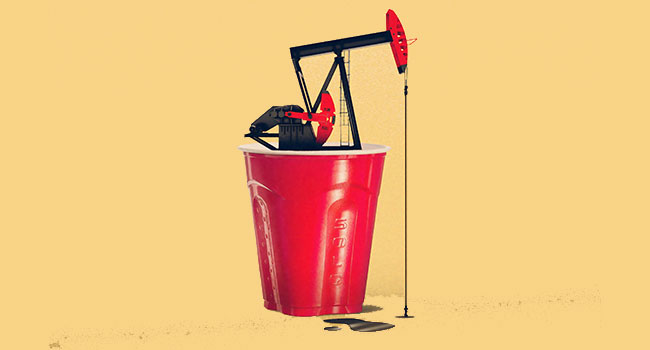 Uncertainty is ruling the energy world.
Uncertainty is ruling the energy world.
“Crude producers continue to grapple with huge uncertainty about where this goes from here,” Tim Gould, the International Energy Agency (IEA) head of energy supply outlooks and investment, told the press last week.
The Organization of Petroleum Exporting Countries (OPEC) agrees. “Uncertainties remain high going forward with the main downside risks being issues related to COVID-19 containment measures and the impact of the pandemic on consumer behaviour,” it said in a recent report.
So the crude oil markets are in flux.
Saudi Arabia’s decision to unilaterally cut output by one million barrels per day (bpd) and the rollout of the coronavirus vaccines generated some euphoria, providing a floor to crude oil prices.
Yet the initial positive mood seems to have been tempered by the resurgent rate of virus spread.
Some other factors are also in play. According to recent reports, producers’ compliance in the expanded OPEC+ slipped to 75 per cent in December. This was one of the lowest levels since the pact was enacted in May 2020, wrote Tsvetana Paraskova for Oilprice.com, quoting the tanker tracking firm Petro-Logistics.
The 10 OPEC members complied at 82 per cent with the production cuts in December, slipping by 10 per cent month over month, Petro-Logistics said.
The nine non-OPEC producers in the extended OPEC+ had an even lower compliance rate. At 64 per cent in December, their compliance dropped by eight per cent month over month, Petro-Logistics added.
Recovering oil production from Libya led to another increase in OPEC’s output in December, a Reuters survey said last week.
Global crude demand also remains a major concern. Contributing to the changing world crude use pattern, India’s consumption fell for the first time in more than two decades in 2020. India has been one of the most rapidly growing fuel consumers in the world.
Bloomberg reported that total petroleum demand in India declined 10.8 per cent last year from 2019 and was at a five-year low of 193.4 million tons. That annual contraction in Indian consumption was the first on record since 1999, the report emphasized.
In the meantime, with crude prices hovering above $50 a barrel, the International Energy Agency is saying a “big chunk” of U.S. shale production is now profitable. The possibility of shale re-emergence is troublesome for most oil-dependent OPEC economies.
Russia has been stressing that continued output management by OPEC+ would boost U.S. shale output.
However, in order to ensure a balanced market and to put a floor beneath falling crude prices, OPEC wanted output restraint. But the policy is costly, stimulating U.S. shale output, which isn’t constrained by any output quota arrangement.
Oil producers appear concerned. Any attempt by U.S. producers of all kinds to boost output this year will backfire and lead to lower prices, says United Arab Emirates energy minister Suhail Al Mazrouei.
With demand still fragile, they “are wise not to jump the gun and overproduce during the recovery year,” Al Mazrouei said in an interview. They “need to be careful not to flood the market,” he added.
A number of variables are in play. The Saudi decision to curb output unilaterally by one million bpd may not have a lasting impact on crude markets. Markets are looking for demand growth. That seems elusive, at least for the time being.
Toronto-based Rashid Husain Syed is a respected energy and political analyst. The Middle East is his area of focus. As well as writing for major local and global newspapers, Rashid is also a regular speaker at major international conferences. He has been asked to provide his perspective on global energy issues by both the Department of Energy in Washington and the International Energy Agency in Paris.
For interview requests, click here. You must be a Troy Media Marketplace media subscriber to access our Sourcebook.
The views, opinions and positions expressed by columnists and contributors are the author’s alone. They do not inherently or expressly reflect the views, opinions and/or positions of our publication.


